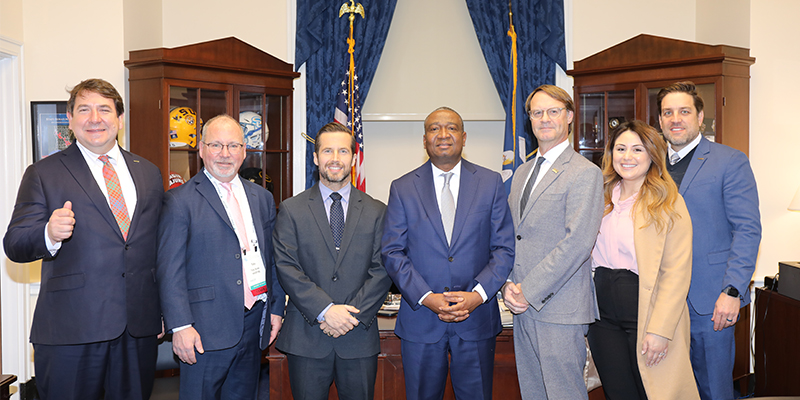By Toby Burke
NAIOP chapter leaders and executive directors from across Canada traveled to Toronto in late October for the first Canadian Public Policy Summit, hosted by NAIOP Corporate. The two-day summit provided chapter leaders with the opportunity to have open and engaging conversations with national policy and opinion leaders on issues of importance to commercial real estate and the development community.
The summit began with opening remarks from NAIOP President and CEO Marc Selvitelli, who emphasized the importance of the engagement from the four Canadian chapters in the policymaking process at the federal, provincial and municipal levels. NAIOP’s 2025 Chairman Alex Thomson and Campbell Strategies’ Paul Brown also expressed the summit’s importance in bringing chapter leaders together for in-depth policy discussions.
Marc Brouillette, principal consultant and founder of Strategic Policy Economics, led the opening session on national electricity challenges within Canada. The country is set to experience a surge in electricity demand in the coming years as the population continues to grow and the electrification of various sectors of the economy increases. He provided attendees with a detailed analysis of the difficulty in meeting future demand for electricity without increased generation, which must include natural gas, and a review of existing decarbonization policies.
The second session focused on federal policies impacting affordable housing development. Nadine Leblanc, senior vice president of housing policies and programs at the Canada Mortgage and Housing Corporation (CMHC), led the discussion on various federal programs to support additional housing development initiatives. The discussion on CMHC programs included the Apartment Construction Loan Program (most oversubscribed program), MLI Select, and Mortgage Loan Insurance for Affordable Multi-unit and Market Rental Housing. Suggestions from attendees for CMHC’s consideration included improved coordination between programs, the “stacking of benefits” to make housing development more economically feasible, and the agency’s authority to serve as a “trump card” with municipal affordable housing requirements. Leblanc committed to continuing the dialogue with the development community to implement policies and programs that achieve national housing objectives.
Next, Greg Lyle, president of the Innovative Research Group, led a session on the political landscape in Ottawa following the election of Liberal Mark Carney over Conservative Pierre Poilievre as Prime Minister of Canada earlier this year. Lyle noted that Canadians support a “time for a change” from the Trudeau administration in federal governance over national issues, including affordable housing as discussed in the previous session. However, Prime Minister Carney needs to move fast to strengthen the economy and generate revenue to support federal programs, according to Lyle.
The “State of Commercial Real Estate” session was led by Peter Norman, economic strategist at the Altus Group, who also conducted a study on the economic impacts of commercial in Canada on behalf of the NAIOP Research Foundation. As in his Market Share post, Norman discussed a “shifting” economy due to a slowdown in population growth, a hybrid labor force, and improved business efficiencies. However, commercial real estate was still noted as an economic driver by supporting over 1 million jobs, equal to the oil and gas sector in Canada. He also mentioned the conversion of vacant and/or functionally obsolete office space for residential use, but momentum had slowed. Retail space appears okay at this time as it has not been overbuilt.
The summit closed with Jack Mintz, Ph.D., senior fellow at the C.D. Howe Institute, providing an overview of international trade policies given the geopolitical situation in Washington, D.C. Following remarks on the country’s flat GDP and net-outflow of capital investments, Mintz turned to the current tariff debate on imported goods and products between the United States and Canada. While the Trump administration argues for tariffs based on national security and addressing a trade deficit, Mintz commented that most governments apply tariffs to varying degrees to generate revenue for government programs and services. Mintz also noted the need for a trade agreement with the U.S., along with a growing economy that is driven by risk-taking and the private sector, rather than through tax policies and regulation intended to influence business decisions.
The Canadian Public Policy Summit was a tremendous success. Participants departed the summit informed of national issues and challenges impacting development, and the corresponding policy discussions that will occur. The summit laid the groundwork for the Canadian NAIOP chapters to participate in these important discussions.








